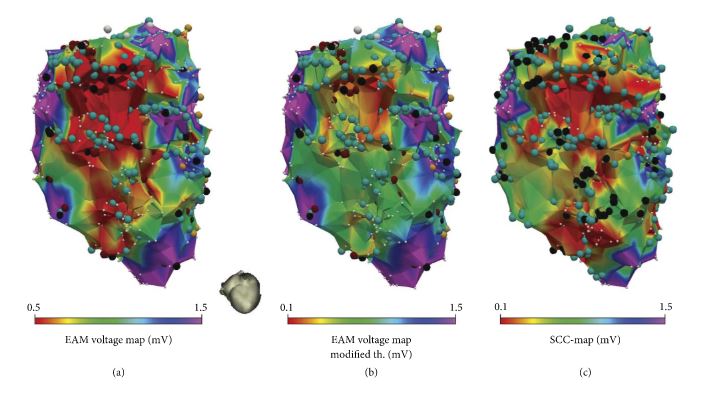
Researchers of BSICoS Group form CIBER-BBN and I3A-Unizar, coordinating NANBIOSIS Unit 27 tooghether with researchers of Physense group of UPF and Hospital Clinic have carried out the research which results have been just published by Journal of Interventional Cardiology.
The researchers propose automatic analysis of EGM signals using the “Slow Conducting Channel Mapping Algorithm” that improves the accuracy of bipolar voltage measurements within the scar area, achieving a more detailed tissue characterization and being an operator-independent tool for accurate identification of SCCs. This last feature encourages the use of the algorithm together with EAM navigation systems as a reproducible approach for guiding VA ablation procedures in daily practice.
The computation was performed by the ICTS NANBIOSIS, U27 High Performance Computing Unit of the CIBER in Bioengineering, Biomaterials and Nanomedicine (CIBER-BBN) at the University of Zaragoza. The CIBER-BBN is an initiative of Instituto de Salud Carlos III
Article of reference:
Alejandro Alcaine, Beatriz Jauregui, David Soto-Iglesias, Juan Acosta,
Diego Penela, Juan Fernandez-Armenta, Markus Linhart, David Andreu,
Lluıs Mont, Pablo Laguna, Oscar Camara, Juan Pablo Martiınez
and Antonio Berruezo, Automatic Detection of Slow Conducting Channels during Substrate Ablation of Scar-Related Ventricular Arrhythmias. Journal of Interventional Cardiology. Volume 2020. https://doi.org/10.1155/2020/4386841








